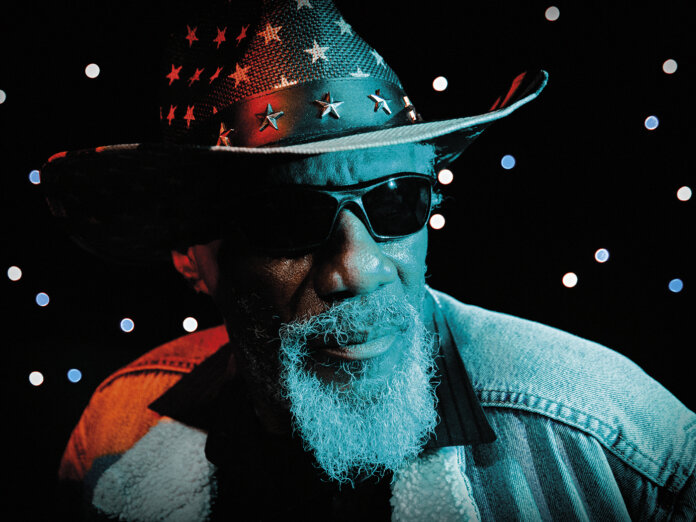Given that Robert Finley was well into his sixties before he got the chance to make his debut album, it’s been no surprise to find that on the three long-players he has released so far, this veteran Louisiana singer-songwriter has painted a fairly full picture of his life up to this point, particularly on 2021’s autobiographically focused Sharecropper’s Son. But this time around, he feels able to cast his net wider for inspiration, lyrically at least.
His own back story sounds fascinating enough to keep mining for creative fuel. One thing he has referred to relatively rarely on record – perhaps ironically given its status as a quintessentially bluesy affliction – is his increasing blindness, caused by glaucoma, which forced him to prematurely retire from his day job as a carpenter and take up music full-time, since which time he has been declared “the greatest living soul singer” by producer and songwriting foil, The Black Keys’ Dan Auerbach, and even had his profile raised in the US by reaching the semi-finals of America’s Got Talent (“Watch this blind singer wow the judges with an original song” the attendant social media implored us).
On Black Bayou, he seems to have let a little more light into his world view, as if, having made what seemed such a defining statement on Sharecropper’s Son – it sounded like a debut album despite its two more soul-oriented predecessors – he can enjoy life a little more now. So Black Bayou is a showcase for Finley the storyteller, an artist who can convincingly inhabit narratives that may not be entirely based on his own experiences, lifestyle or even beliefs. That’s perhaps just as well, judging by the tale on the final track: in the acoustic blues of “Alligator Bait” (key rhyme, “I coulda got ate”) the protagonist accuses his grandfather of using him, in his youth “down on the Bayou”, to rouse the titular creatures in the swamp so he could shoot them, by allowing him to step on them, mistaking them for logs. So he tells his father, who admits that he was used in the same way when he was young. Ouch.
True story? Maybe, but not in Finley’s own life. And elsewhere, the narrators also sound less than trustworthy. Does the boozy but God-fearing protagonist of “Gospel Blues” really deserve to reach the kingdom of heaven? Does Finley, or the character he is playing, believe the words he sings in “You Got It (And I Need It)”, delivered in a falsetto that verges on a parody of seductive soul as he tries to seduce a not-quite-single woman. “Your man is gone, he ain’t never comin’ home,” he insists. “Don’t worry about what people say, girl, we gotta be strong.” Is he promoting self-improvement here, or simpler, more instinctive transaction, as the title neatly summarises? And he’s already assured his intended, “Don’t worry about being short-changed, baby, cos Daddy’s packing a lot”.
Not that he doesn’t know how to woo a lady, of course. “Can’t Blame Me For Trying” is another lustful lament in the grand tradition of the horny bluesman – one of increasingly few male demographics who can sound anything but repugnant admitting their lascivious intentions so bluntly. “Bought you a brand new bicycle/So you could ride around,” he tells a love interest who is taking a dim view of his economic prospects, “and I got something else I wanna give you if you come and get it now”. Perhaps wisely, she rejects his offer.
Backed by Auerbach and a band including Patrick Carney on drums, there’s a beautifully greasy Southern fried feel to funkier tracks such as “Miss Kitty” and “Sneakin’ Around”, the latter a tale of cheating, suspicion and possibly unfounded accusations that would fit snugly into the Robert Cray songbook.
Yet more heartfelt material here hits the spot just as effectively, as he draws on what must have been woefully frustrating decades spent clinging on to his musical dreams. On the bitter but brassy “Waste Of Time”, and the agonised “Nobody Wants To Be Lonely”, we are reminded that it’s Finley’s supremely charismatic voice that will always be his trump card. Approaching his eighth decade, then, and with no shortage of tall tales to impart, Robert Finley’s work here is clearly just getting started.



